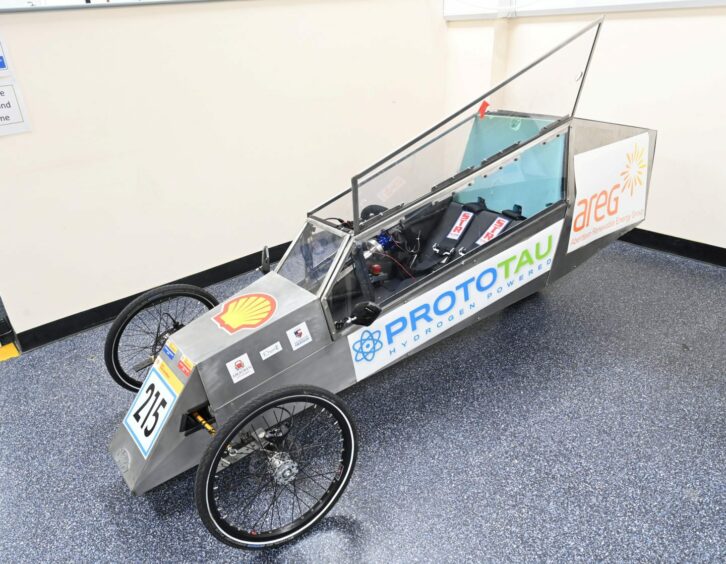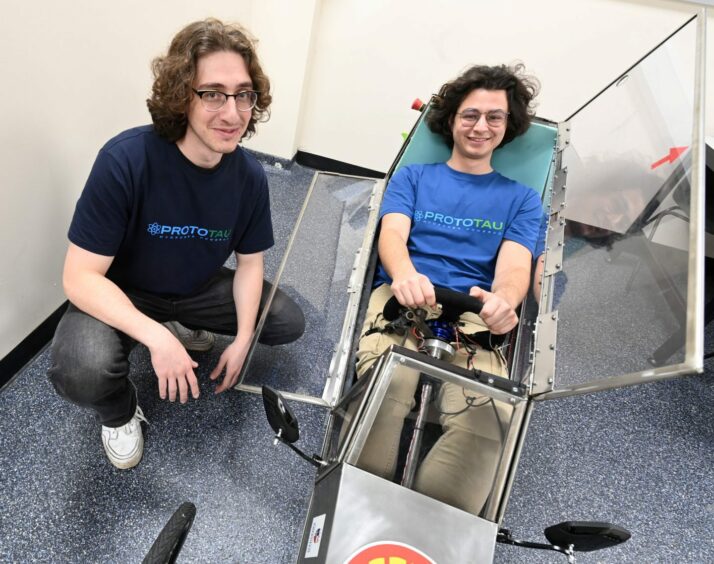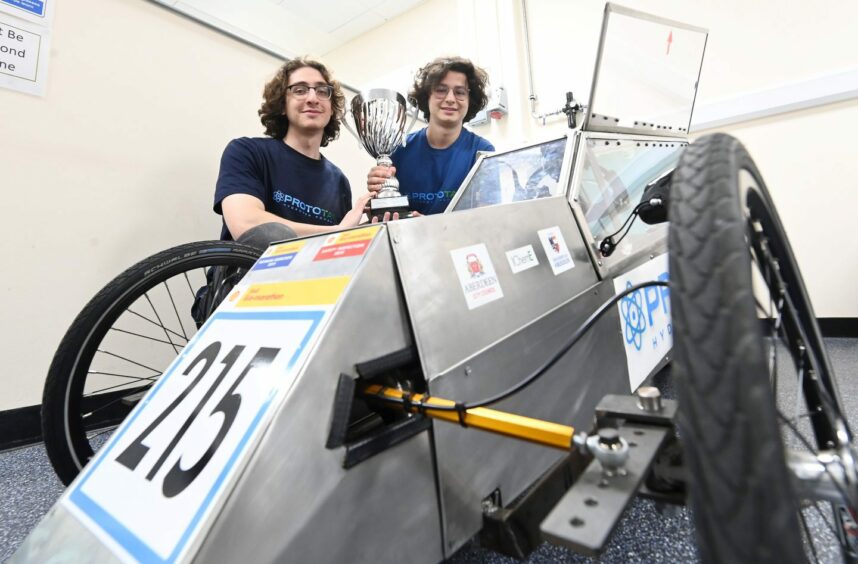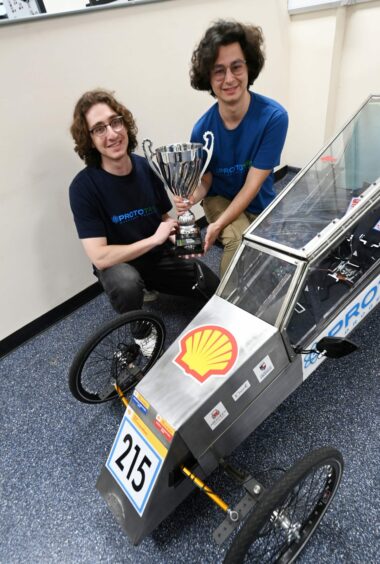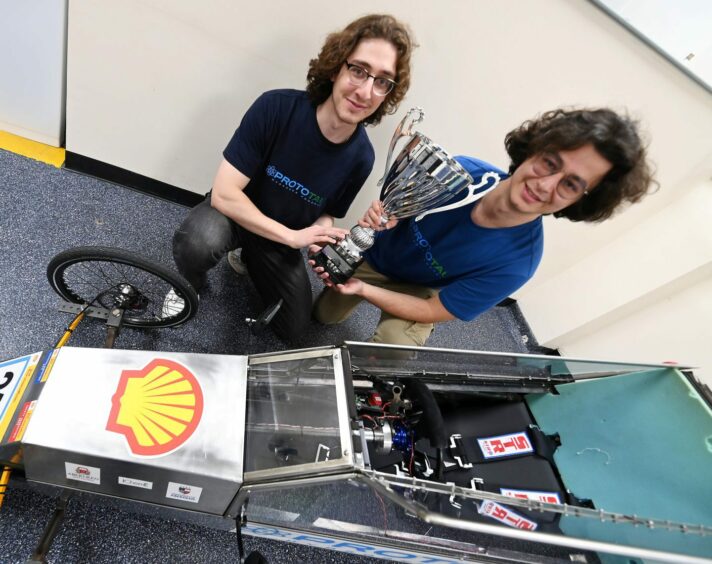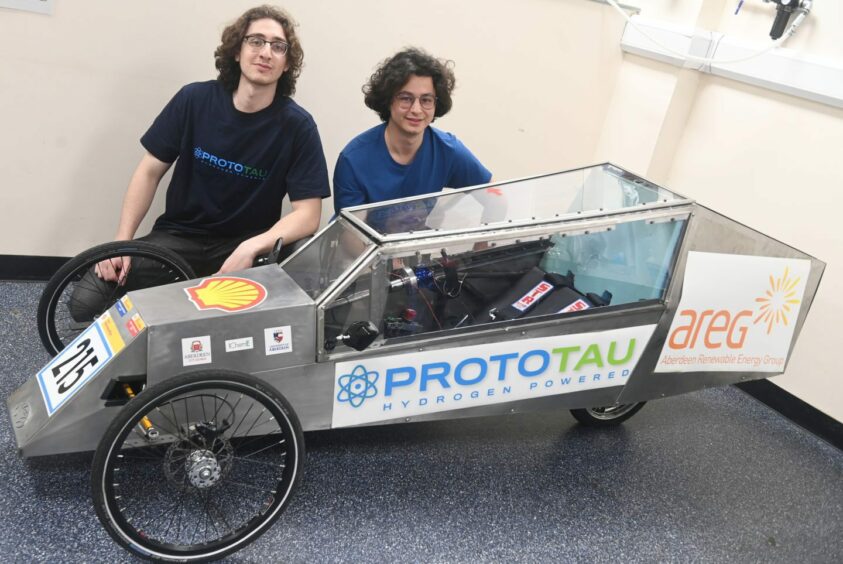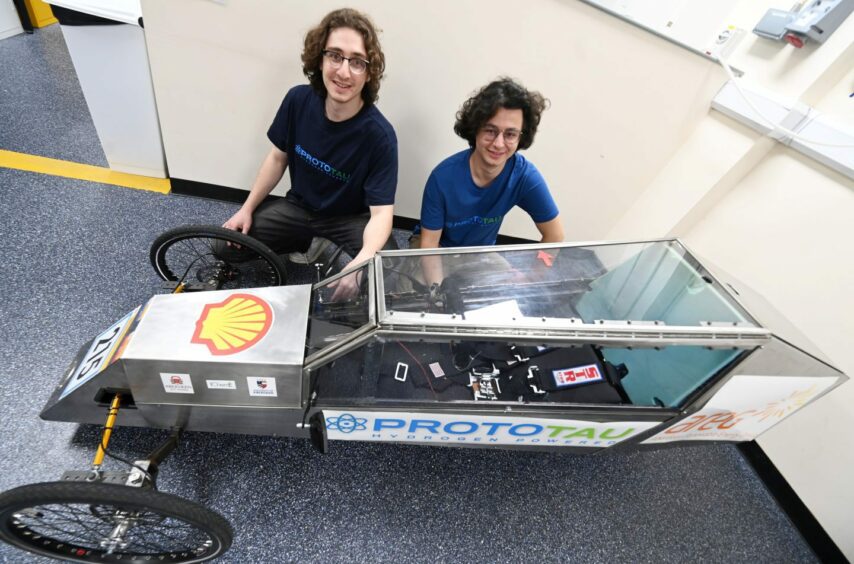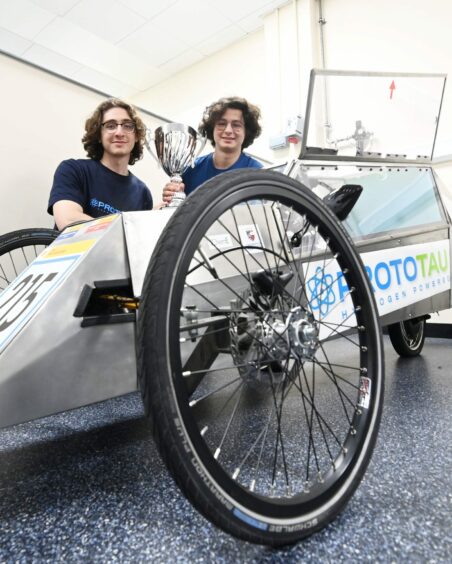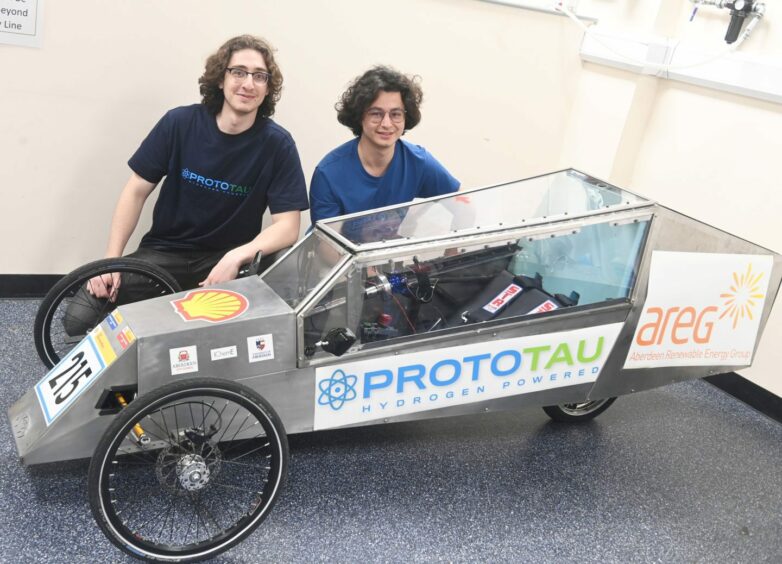 © Supplied by Chris Sumner
© Supplied by Chris Sumner ProtoTAU, Aberdeen University’s Shell Eco-Marathon team are set to attend Aberdeen Renewable Energy Group’s (AREG) Energy Futures Conference today.
The Aberdeen students will be showcasing the hydrogen-powered car that they entered in Shell’s 2019 Eco-Marathon and designs for the next year’s race car.
This follows the announcement that ProtoTAU and AREG have formed a partnership.
In a conversation with Energy Voice, ProtoTAU’s industry liaison Irakli Tsikarishvili, said: “Aberdeen Renewable Energy Group has offered a lot of support, David Rodger, the CEO, has been with us from the beginning.
“Now we have been invited to the conference where there will be local and global energy companies that we are hoping to gain expertise, sponsorships and partnerships from.”
The Aberdeen University team want to create “a bit of a contrast” between what it was capable of in 2019 and what it can do now.
ProtoTAU plan on showcasing the new components and technologies it is using it its upcoming car at the energy futures event today.
Tsikarishvili said: “We want to convince people that we are serious about this project.”
Local support
The team are trying to keep the carbon footprint of the project low and support local business by sourcing materials from Aberdeen if and when possible.
“Every time we approach local companies, they are helpful in terms of providing us with components and also in providing knowledge,” Eval Bregu, ProtoTAU’s president told Energy Voice.
“They ask us, ‘can you send us a PFD of your system?’ and then they come back with feedback.”
According to the society president this interaction with local firms helps from a monetary and material point of view as well as providing expert knowledge.
Bregu also said “The university is super supportive of this. The whole idea of ProtoTAU started with one of our lecturers.”
Shell Eco-Marathon
There will be a jump in technology between the 2019 car and the one the team are currently working on.
Ditching steel, the car’s chassis will be made of aluminium and it will be sporting a carbon fibre shell.
These changes will shed mass allowing the car to go further on less fuel, giving the team an even better chance of taking home the top prize at Shell’s upcoming eco-marathon in France.
The race will see teams competing with their prototype, three-wheel, hydrogen cars to see whose vehicle can go the furthest distance on a set amount of fuel.
Universities from across Europe and Africa will be competing in various events.
Tsikarishvili said: “The chemical team have been working very hard to come up with a safe and efficient hydrogen system and we will also have a new transition system.”
